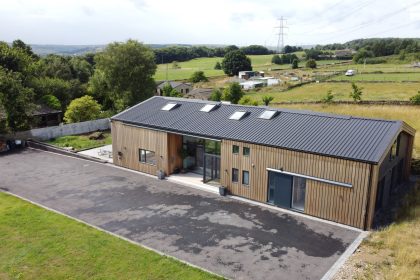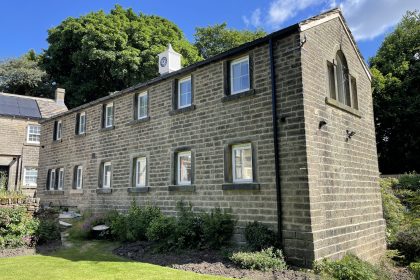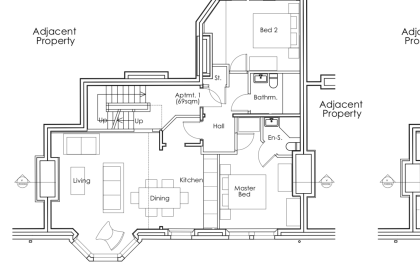With the best will in the world, sometimes planning applications don’t go the way you would like nor expect them to.
During the course of your planning application, there are various parties that are consulted along the way including highways, tree officers, conservation groups, neighbours, and other relevant departments relating to your proposals.
It is common to have queries, clarifications and sometimes objections raised during the consultation process, but this doesn’t necessarily mean that the planning officer dealing with your application will agree with the objections and refuse your project.
Objections and valid points of concern which are deemed relevant by the planning officer must be responded to and/or addressed. There are few ways to go about this >
- Attempt to deal with the issue raised whilst the application is running (by submitting amended drawings or further information if necessary)
- Withdraw and re-submit the application (usually making use of a free go within one year)
- Allow the application to continue and attempt to get it to planning committee
- Allow the application to continue to refusal and go down the appeal route
 Attempting to deal with a planning objection whilst the application is running
Attempting to deal with a planning objection whilst the application is running
Often objections are raised quite late on during the process and time is always a challenge, especially these days.
If your plans need further changes or more information to support your scheme, time may be limited as the planning officer will need to re-distribute the amended plans and re-consult with the statutory consultees. Often an extension of time can be agreed to facilitate this.
If only minor amendments are required, then this is usually the best route to choose.
In addition, it might be appropriate to suggest that your permission is granted with a condition or conditions attached, meaning that the objection or issue is dealt with at a later stage. You would then need to go back to the council to tidy up the loose ends by submitting an application to discharge these conditions.
Withdraw and re-submit the planning application
It might be an option to consider withdrawing your plans if the amendments required are deemed substantial and you cannot make the necessary adjustments to your plans within the necessary timescales.
You can usually withdraw your application and resubmit within 12 months without having to pay any additional application fees.
This allows you to amend and resubmit your scheme, as long as the site and the nature of the proposals are predominantly the same, but clearly time can be lost going through the entire process again.
Planning committee
Having your application determined at planning committee can often be unpredictable as your plans are in the hands of planning committee members, who often have limited planning expertise, and where a simple majority vote determines the final decision.
Different councils also have different criteria and procedures as to which schemes go to committee and therefore it is useful to be aware of that.
However, this route can be beneficial for example if you have public or neighbour support for your proposals, or where believe your arguments in favour of the proposals outweigh the planning policies that are being cited as reasons for potential refusal.
If this is the route you would like to go down, you should try to persuade your local councillor to ask for the application to go to committee. It is important to ensure that your councillor is supportive of your scheme and ideally that there is not too much local objection.
They are usually only too happy to discuss this with you before making a decision on whether they can help you with this.
Otherwise, it is only usually larger or more contentious applications that are heard at planning committee, and the planning authority usually decide which applications meet these criteria.
Accepting a refusal
As you would expect, many applicants prefer to avoid a refusal as this doesn’t look good on the planning record for the site or property.
Once you understand the exact reasons for refusal, you can look to address them – if you can, and you’re willing to, that is. Note that an appeal will only deal with the reasons for refusal cited on the decision notice – no new reasons or other matters are considered at this stage.
Appeals against refusals must be lodged to the independent inspectorate usually within 6 months of the council’s decision and this will be explained on the decision notice.
You can also appeal planning decisions made by planning committees, so do not be put off that route as often these are also often easier to appeal as decisions are not always made on sound planning policy grounds.
It is usually best to involve a Planning Consultant at this stage to review the refusal and see whether they consider there is a case that can be put forward and decent grounds for appeal.
Another strategy is to both appeal a refusal and submit an amended planning application at the same time. Both would be treated totally separately and be decided on their own merits, and this can save you time by giving you two chances of reaching an acceptable approval running concurrently.
At Fibre Architects, we pride ourselves on being fully committed and exploring all possible ways of achieving an acceptable approval for our clients, whatever hurdles are put before us.
Sometimes this includes involving other specialist consultants to address the issues, but it is rare that there is no or little chance of reaching some form of acceptable conclusion, albeit compromises may have to be made.
If you would like to find out more about the planning process, submitting an application or maybe your application has been refused, please reach out to us. We’d be more than happy to review any stalled or new projects and have an informal chat to advise on how best to move forward.







